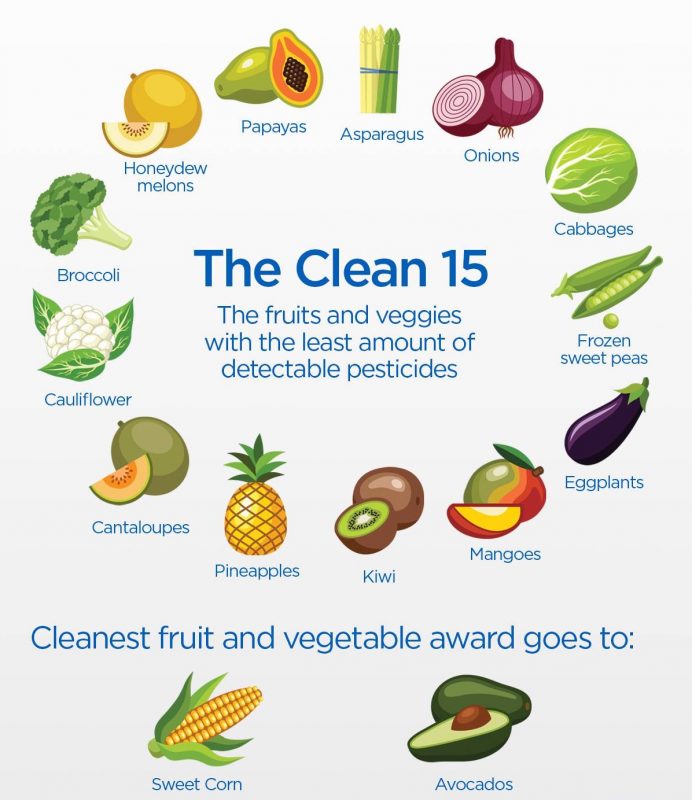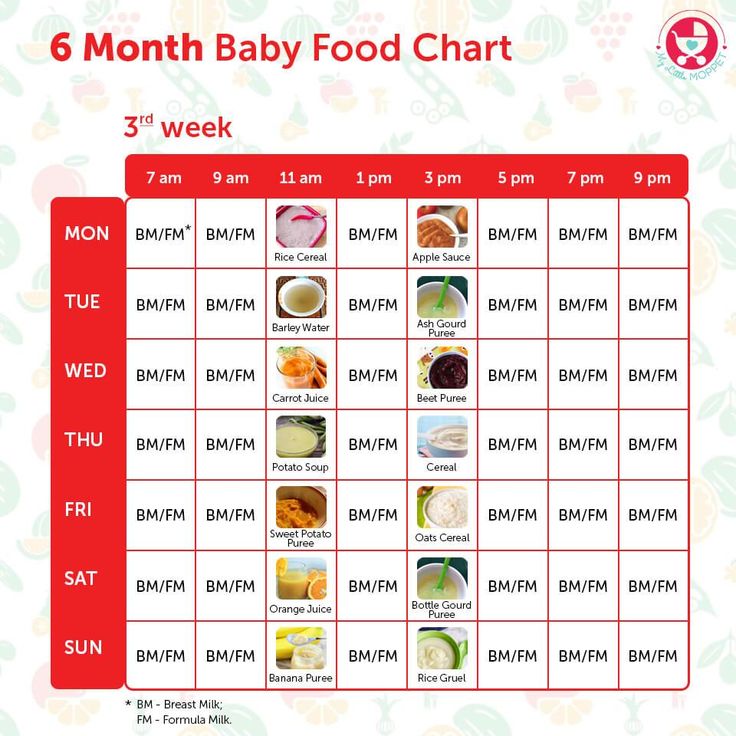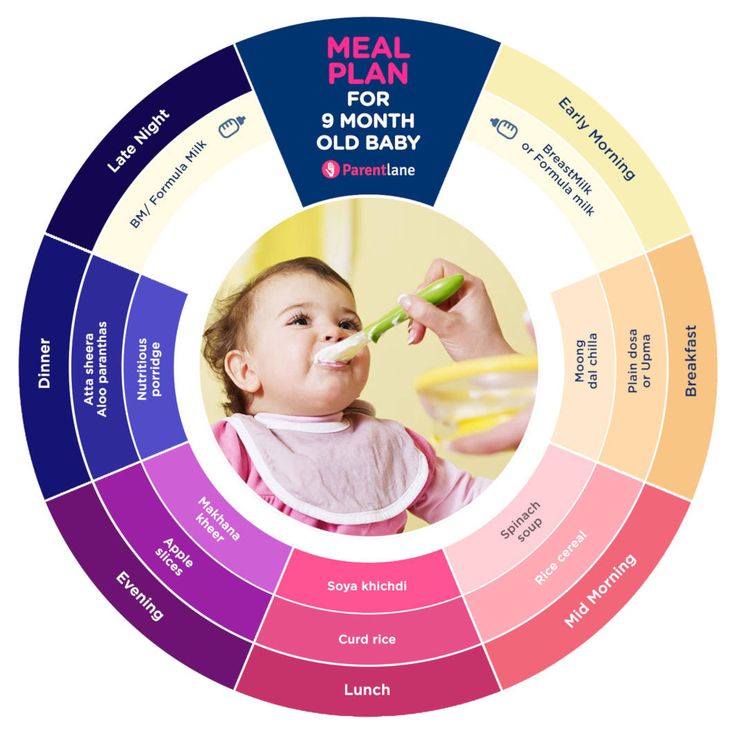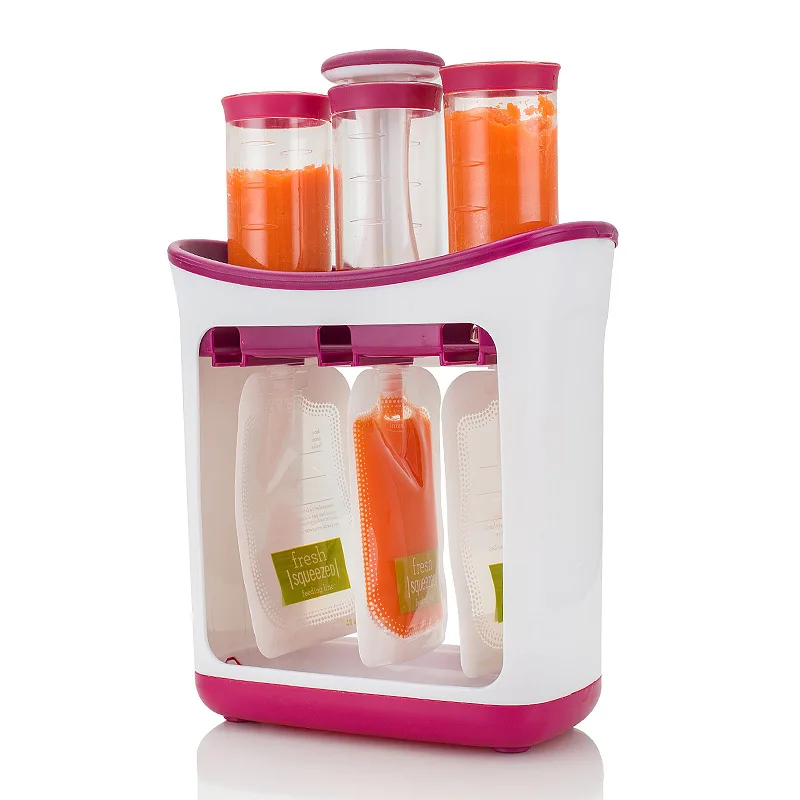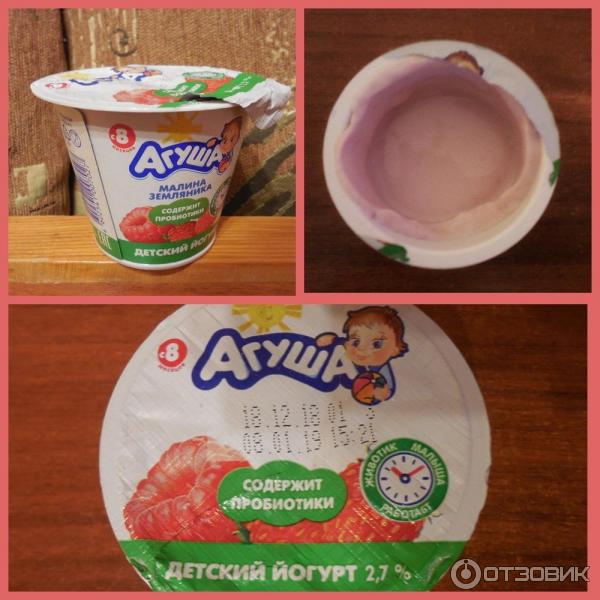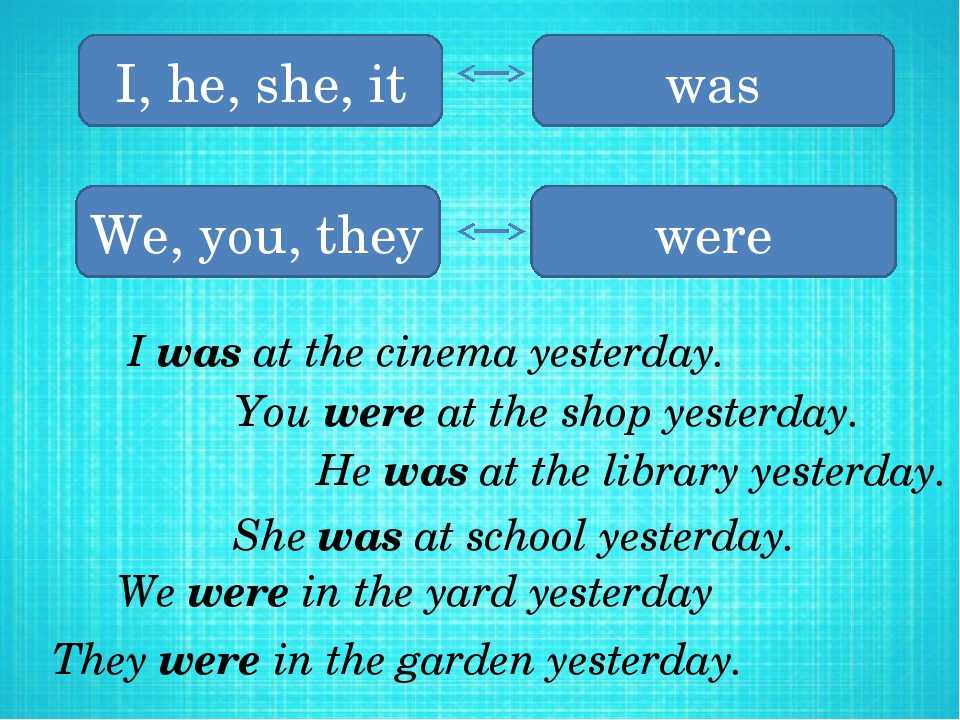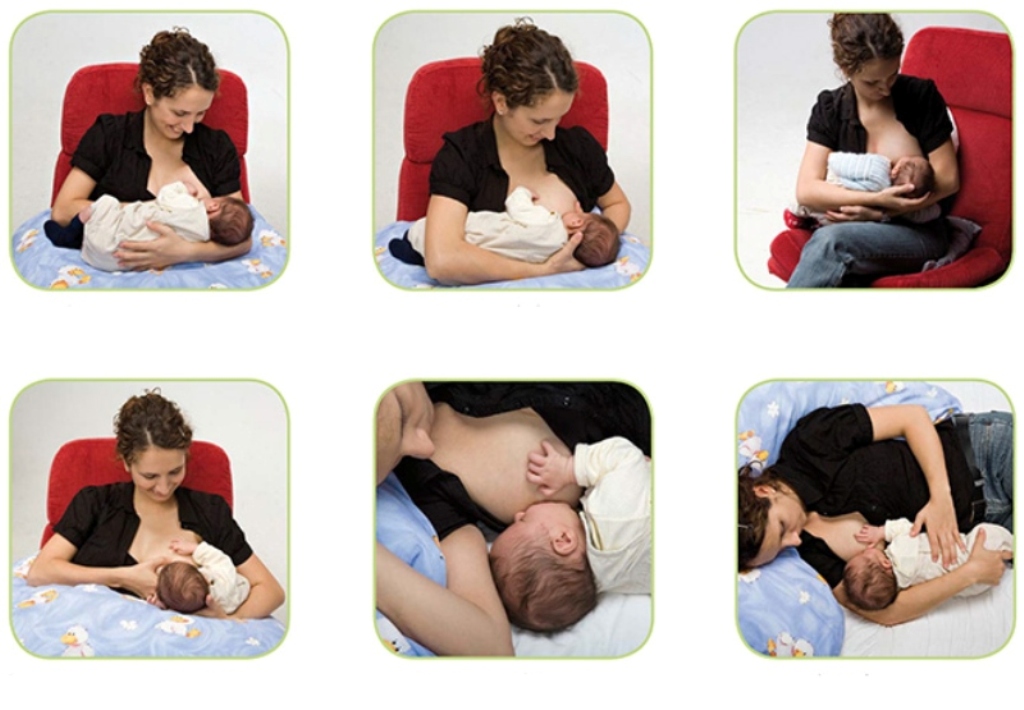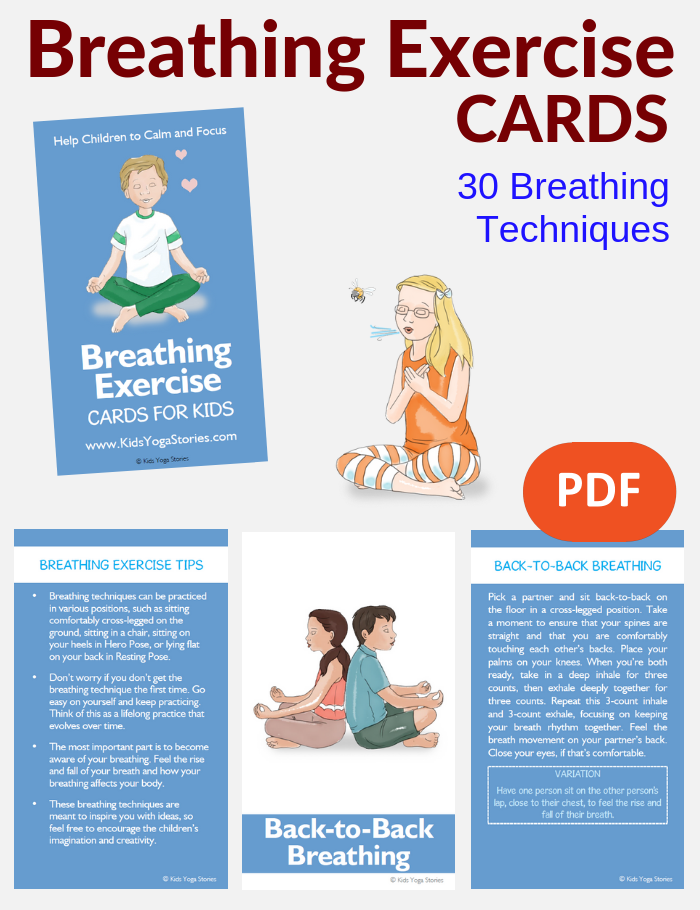Why does my baby cry when breast feeding
My baby fusses or cries when breastfeeding
By Kelly Bonyata, BS, IBCLC
© Lsantilli - Fotolia.com
Some babies will fuss, cry or pull off the breast during breastfeeding. There are a number of reasons why this might be happening. It’s pretty common to see this type of behavior at around 6-8 weeks, though it can occur at any time. If your baby is generally fussy (not just when nursing) see My baby is fussy! Is something wrong?
Determining the problem
Here are some of the problem-solving steps I go through when my baby is fussy at the breast or a mother asks me why her baby is fussing while breastfeeding:
.
How old is baby? Most babies go through growth spurts during the first few days at home and around 7-10 days, 2-3 weeks, 4-6 weeks, 3 months, 4 months, 6 months, 9 months, etc. Many babies are fussy during growth spurts.
Is baby working on anything new developmentally? Babies who are starting to notice the world around them can be notoriously distractible. Any kind of new developmental step that baby is working on can affect nursing temporarily, whether it be fussy nursing behavior or simply more frequent nursing.
When is baby fussing? To figure out the cause it’s helpful to pay attention to when the fussy behavior happens, both during the nursing session and during the day.
If baby is fussy right when your milk is letting down (or immediately after), there’s a good chance that the fussy nursing is related to a fast let-down. If baby is fussy before let-down, or a few minutes into nursing (and a while after let-down), then baby may be impatient for the fast flow of milk that comes with let-down. Fussing at the end of a nursing session (or what seems to be the end) may mean that baby needs to burp, or is ready to finish nursing, or just wants to suck (and doesn’t want to deal with a new let-down at this point), or wants to continue nursing on the other side or with a faster flow of milk.
If the fussy behavior is mainly in the mornings, it might be due to a faster than usual let-down if baby has just had a longer sleep period and mom’s breasts are fuller than usual.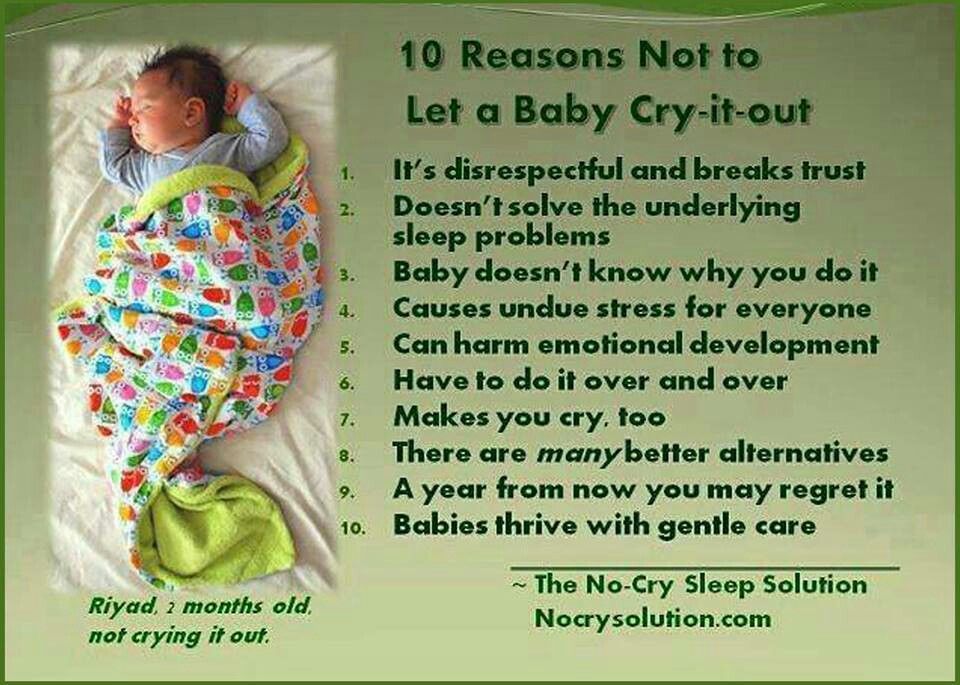 If baby is fussier during evening nursings, it may be due to the normal fussy time that most babies have during the evening. Although most babies don’t react to foods that mom eats, some do. If you eat a particular food at about the same time each day (or most days) and baby has a regular time where she fusses during nursing, try not eating that food for a week or two to see if things improve.
If baby is fussier during evening nursings, it may be due to the normal fussy time that most babies have during the evening. Although most babies don’t react to foods that mom eats, some do. If you eat a particular food at about the same time each day (or most days) and baby has a regular time where she fusses during nursing, try not eating that food for a week or two to see if things improve.
Does fussing occur on both sides equally or only on one side? Most moms have a faster let-down and/or a more abundant milk supply on one side than the other, so if your baby fusses more on one side, it may be due to these differences.
What else is going on with baby? Is she sick or teething? Is something new or different going on in her environment? Has she started solids or is she trying a new food? Is she exhibiting other symptoms besides the fussy nursing?
Below are discussions of some of the different things that can lead to fussy nursing behavior. Keep in mind that the problem may also be a combination of several things.
Keep in mind that the problem may also be a combination of several things.
Does baby need to burp?
Many babies will cry, fuss, pull off the breast, etc. if they need to burp. Try to burp between breasts and after a feeding, but don’t worry if baby does not burp and is content. Breastfed babies overall don’t take in as much air during a feeding as bottle-fed babies do, so usually don’t need to burp as often. If baby has been crying before she nurses, or is so hungry that she nurses “frantically” or if mom has a fast let-down, baby could be taking in more air and may need to be burped more often.
Burping is usually only necessary during the first few months, though it may extend longer. Once your baby is moving more freely, she will be able to relieve the gastric gas herself. This usually will occur between the 4th and 6th month, but may be shorter in some children and longer in others.
If baby has a hard time burping, try burping more often during a feeding. The best burping position is one that applies firm pressure to the baby’s tummy. Placing baby over the shoulder way up so that there is pressure on baby’s abdomen often works well. Walking around while doing this might distract her long enough to get a good burp. You may even want to lie baby down on her stomach and burp her that way.
The best burping position is one that applies firm pressure to the baby’s tummy. Placing baby over the shoulder way up so that there is pressure on baby’s abdomen often works well. Walking around while doing this might distract her long enough to get a good burp. You may even want to lie baby down on her stomach and burp her that way.
Growth spurt
Babies often pull off and fuss during growth spurts. Most babies go through growth spurts, sometimes called frequency days, during the first few days at home and around 7-10 days, 2-3 weeks, 4-6 weeks, 3 months, 4 months, 6 months and 9 months (more or less). More growth spurt information in this link.
Distractible baby
If baby seems to be pulling off the breast at any distraction (real or imaginary), then see The Distractible Baby.
Forceful let-down
Some babies will pull off the breast soon after let-down if mom has a forceful let-down. Baby may be frustrated by the too-fast flow of milk with let-down. A too-forceful let-down can also cause excessive gas or spitting up/vomiting. There is more information here on symptoms of and how to deal with a fast let-down reflex.
A too-forceful let-down can also cause excessive gas or spitting up/vomiting. There is more information here on symptoms of and how to deal with a fast let-down reflex.
Slow let-down
Some babies get very impatient if mom has a slow let-down. There is more information here on speeding up a slow let-down reflex.
Baby wants a faster milk flow
Even very young babies can be quick to notice that pulling off, kneading the breast, etc. can cause an additional let-down, and can facilitate a faster, easier milk flow. Some babies become impatient with the slower milk flow following the initial fast flow at let-down. This may or may not be related to a slow let-down.
When a feeding begins at the breast there are drops of milk. Then when the initial let-down occurs (several seconds to a minute into the feeding), the milk flow speeds up quite a bit. At that time it may drip very quickly, squirt, or even spray. Some minutes later it slows again and the baby must continue to suck vigorously in order to elicit further let-downs.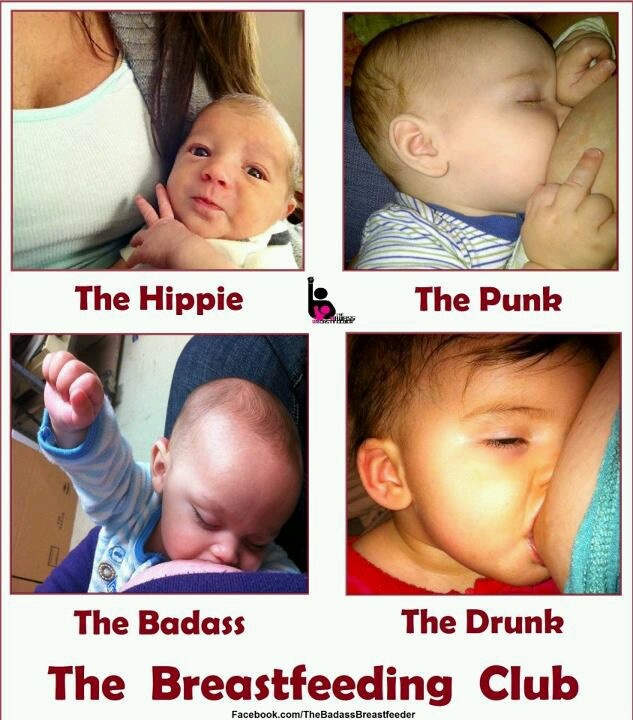 This pattern can continue through successive, multiple let-downs as long as the baby is continuing to nurse vigorously. Eventually, baby will learn that the flow will pick back up again if she’ll only continue to vigorously suck/swallow.
This pattern can continue through successive, multiple let-downs as long as the baby is continuing to nurse vigorously. Eventually, baby will learn that the flow will pick back up again if she’ll only continue to vigorously suck/swallow.
With bottle feeding, the flow is instant and continuous. The baby is required to work very little. Once a baby has had a bottle, especially a lot of bottles, she may begin to prefer the ease of bottle-feeding over the work of breastfeeding. She may become frustrated at the breast after the first let-down occurs and the flow of milk begins to slow.
If baby is getting bottles you might consider putting them away, at least for a while. When you must use a bottle, only use a newborn nipple for as long as baby will tolerate it so that she never gets a really fast flow of milk from the bottle, but has to work a little more to get the milk.
Sometimes babies of moms with oversupply or fast let-down will also get very used to the fast flow and object when it normally slows somewhere between 3 weeks to 3 months.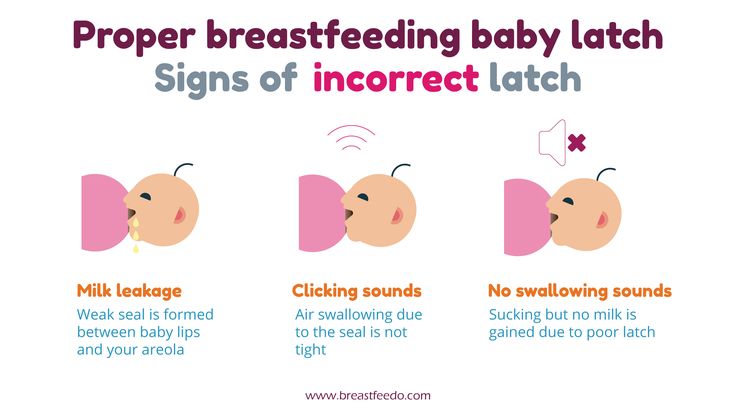
It can be helpful to do some breast compression when this fussiness starts or right before you expect it to. This will help speed up the milk flow again. Once compression stops helping, try switching baby to the other side when she begins to fuss and back and forth again (after using compression) as you need to.
Baby is done nursing for the moment
If baby is fussing after she’s been nursing for a while, and you’ve ruled out other causes, she may be in the process of changing her nursing pattern. Babies become very efficient at the breast with growth and maturity. They can milk the breast in a lot less time per feeding session than they required before. Baby’s frustration may just be a sign that she’s finished and wants to move on.
On a similar note, an occasional baby will just want to suck at the end of a nursing session and the flow of milk with let-down frustrates her. You might see if offering her a finger or pacifier (if baby is older than 4-6 weeks) to suck on during these times seems to help.
Baby prefers one side
Sometimes babies will refuse or fuss at a breast when the let-down is slower or too forceful, or the supply a bit lower. They in turn will prefer the side which lets down more/less quickly and in which the supply is more bountiful. See also: Lopsided! What can I do?
Fussy in the evening
Many young babies tend to pull off and fuss at the breast in the evening. See the article Cluster Feeding and Fussy Evenings.
Teething
Teething can cause fussy nursing behavior, as some babies experience gum discomfort with sucking. Baby might start to nurse, but then pull off and cry or fuss and not want to nurse anymore. See Teething for more information and tips.
Thrush
Frequent pulling off the breast can be a symptom of thrush.
Stuffy nose
A stuffy nose can cause fussy nursing behavior. If your baby has a stuffy nose and is having a hard time breathing and nursing at the same time, see colds & congestion.
Allergy or food sensitivity
Some babies with allergies or food sensitivities exhibit fussy nursing behavior. Often when there is a sensitivity to something in mom’s diet, baby will come to the breast hungry but when she tastes/smells something in the milk that will cause her GI distress, she pulls off, bats her head back and forth, etc. Sensitivities to foods in mom’s diet are rare. If this is the problem, you will most likely notice other symptoms, such as excessive spitting up or vomiting, colic, diarrhea, rash, persistent congestion or runny nose, or excessive gas. More information on food sensitivities in babies and links to more allergy information can be found in my article Dairy and other Food Sensitivities in Breastfed Babies.
Low milk supply
Low milk supply can cause baby to be fussy at the breast. If you feel that your milk supply may be low, see this page for more info: Increasing low milk supply.
Reflux
Reflux can result in baby being fussy at the breast. See Reflux and Breastfeeding for more information.
See Reflux and Breastfeeding for more information.
Tongue-Tie
Tongue-Tie can result in baby being fussy at the breast. See Breastfeeding a Baby with Tongue-Tie (Resources) for more information.
Cluster Feeding and Fussy Evenings • KellyMom.com
By Kelly Bonyata, BS, IBCLC
It is very common for babies to be fussy and nurse very often in the evenings, particularly in the early months.
My daughter had a fussy time every evening for a couple of months (yes, it does go away!). I spent weeks camped out on the end of the sofa with a constantly nursing and/or fussy baby every evening from about 6 to 10 PM.
With my son, we didn’t have the luxury of being able to sit down. Alex was unhappy and crying unless he was upright and being walked around at this time of day (and sometimes this only helped him to be less unhappy). He would occasionally have a very fussy time during the day, too. Nursing rarely helped to calm his fussiness (unlike with my daughter), so I usually didn’t have that tool to work with (though I always tried).
His fussiness was such that I looked into other causes (such as food sensitivity), but we never determined any reason for it and he was all smiles the rest of the time. The fussiness gradually went away between 3 and 4 months, as is the norm, but the first few months were hard. Nowadays, the typical comment that I hear about him is “Is he always this happy?” So remember: this, too, will pass…
Cluster feeding, also called bunch feeding, is when babies space feeding closer together at certain times of the day and go longer between feedings at other times. This is very common, and often occurs in the evenings. It’s often -but not always- followed by a longer sleep period than usual: baby may be “tanking up” before a long sleep. For example, your baby may nurse every hour (or even constantly) between 6 and 10 PM, then have a longish stretch of sleep at night – baby may even sleep all night.
.
Cluster feeding often coincides with your baby’s fussy time.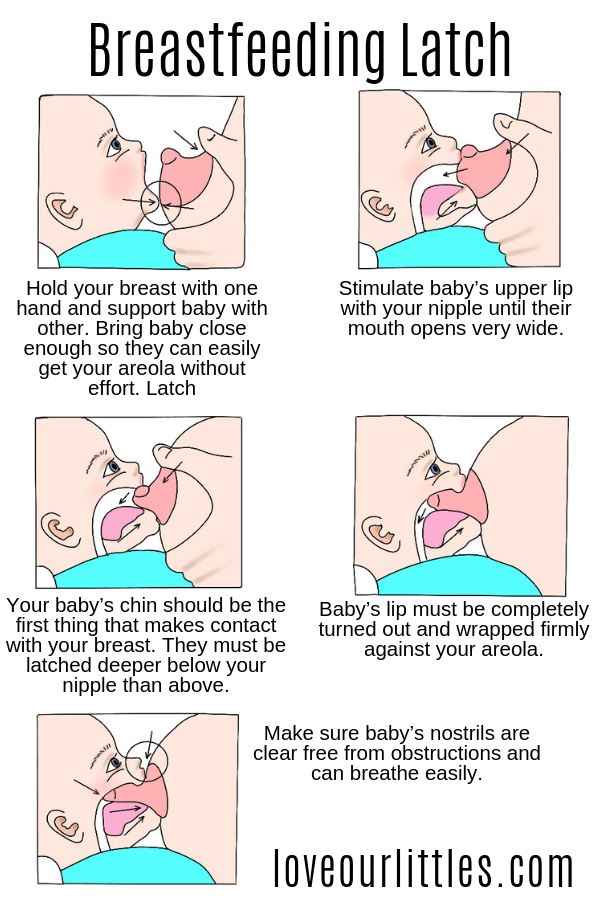 Baby will nurse a few minutes, pull off, fuss/cry, nurse a few minutes, pull off, fuss/cry… on and on… for hours. This can be VERY frustrating, and mom starts wondering if baby is getting enough milk, if something she is eating is bothering baby, if EVERYTHING she is doing is bothering baby… It can really ruin your confidence, particularly if there is someone else around asking the same questions (your mother, your husband, your mother-in-law).
Baby will nurse a few minutes, pull off, fuss/cry, nurse a few minutes, pull off, fuss/cry… on and on… for hours. This can be VERY frustrating, and mom starts wondering if baby is getting enough milk, if something she is eating is bothering baby, if EVERYTHING she is doing is bothering baby… It can really ruin your confidence, particularly if there is someone else around asking the same questions (your mother, your husband, your mother-in-law).
This behavior is NORMAL! It has nothing to do with your breastmilk or your mothering. If baby is happy the rest of the day, and baby doesn’t seem to be in pain (as with colic) during the fussy time – just keep trying to soothe your baby and don’t beat yourself up about the cause. Let baby nurse as long and as often as he will. Recruit dad (or another helper) to bring you food/drink and fetch things (book/remote/phone/etc.) while you are nursing and holding baby.
Does this mean that baby needs more milk than I can provide?
No.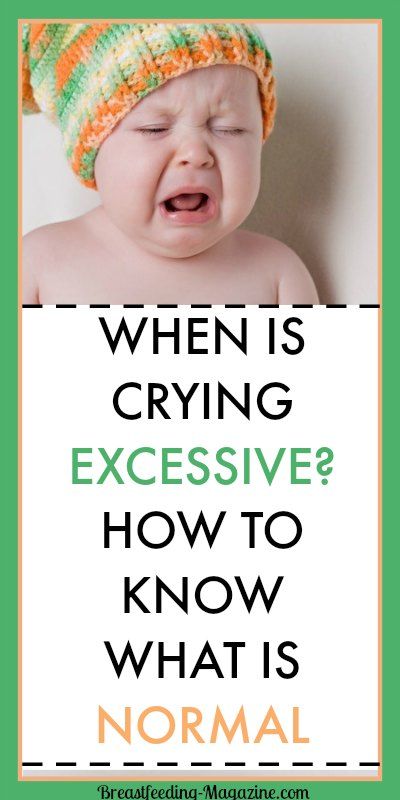 Don’t give baby a bottle — supplementation will only tell your body that you need LESS milk at this time, and that will not help matters. Also, keep in mind that formula fed babies experience fussy periods in the evening, too — fussy evenings are common for all young babies, no matter how they are fed. The Academy of Breastfeeding Medicine spells this out in their supplementary feeding guidelines:
Don’t give baby a bottle — supplementation will only tell your body that you need LESS milk at this time, and that will not help matters. Also, keep in mind that formula fed babies experience fussy periods in the evening, too — fussy evenings are common for all young babies, no matter how they are fed. The Academy of Breastfeeding Medicine spells this out in their supplementary feeding guidelines:
There are common clinical situations where evaluation and breastfeeding management may be necessary, but supplementation is NOT INDICATED including… The infant who is fussy at night or constantly feeding for several hours.
Why do babies fuss in the evening?
One frequently-heard explanation for baby’s fussiness in the evenings is that milk volume tends to be lower in the evening due to the natural cycling of hormones throughout the day. However, Dr. Peter Hartmann, a breastfeeding researcher, has said that in the women he has studied, milk volume is not low at this time of day.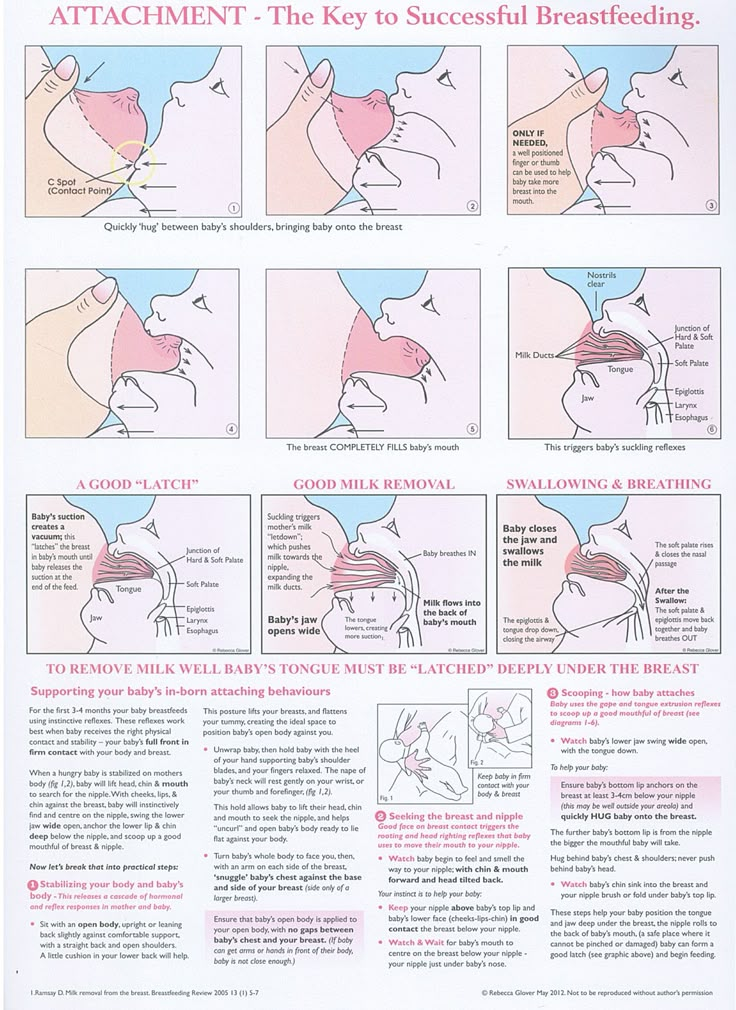 Even if milk volume is lower in the evening, fat content is typically higher in the evening (particularly if baby is allowed to control this via cue feeding), so the amount of calories that baby is getting should not be significantly different. Milk flow can be slower in the evening, which may be frustrating for some babies.
Even if milk volume is lower in the evening, fat content is typically higher in the evening (particularly if baby is allowed to control this via cue feeding), so the amount of calories that baby is getting should not be significantly different. Milk flow can be slower in the evening, which may be frustrating for some babies.
Doctors often attribute evening fussiness to baby’s immature nervous system (and the fussiness does end as baby gets older, usually by 3-4 months). However, Dr. Katherine Dettwyler (who does research on breastfeeding in traditional societies) states that babies in Mali, West Africa and other traditional societies don’t have colic or late afternoon/evening fussiness. These babies are carried all day and usually nurse several times each hour.
So perhaps none of these explanations is a complete answer to baby’s evening fussiness. For many babies, the fussy time seems to be characterized by a need to have small quantities of milk at frequent intervals, combined with lots of holding, cuddling and movement. Babies who are offered as much expressed milk or formula as they will take by bottle [note: this practice will decrease your milk supply!] often behave in exactly the same way in the evenings. Baby takes a small amount and dozes (and fusses), then a little more, and so on. Perhaps babies “remember” mom being very active during her pregnancy at these times, and want to be held, rocked, and nurtured constantly again.
Babies who are offered as much expressed milk or formula as they will take by bottle [note: this practice will decrease your milk supply!] often behave in exactly the same way in the evenings. Baby takes a small amount and dozes (and fusses), then a little more, and so on. Perhaps babies “remember” mom being very active during her pregnancy at these times, and want to be held, rocked, and nurtured constantly again.
Perhaps babies simply need to nurse more often at this time — rather than consume more milk.
Soothing techniques for the fussy times
- Wear baby in a sling or baby carrier. This will free one or both hands for other tasks (fixing dinner, caring for other children) while you hold, soothe and nurse your baby.
- Change of pace. Let dad have some “baby time” while mom takes a shower or simply gets some time to herself to relax and regroup after a long day.
- Go outside.
 Relax baby (and mom too) with a walk, or just sit and enjoy the outdoors. Try this a little before baby’s regular fussy time.
Relax baby (and mom too) with a walk, or just sit and enjoy the outdoors. Try this a little before baby’s regular fussy time. - Soothe with sound. Sing, hum, talk, murmur shhhh, listen to music, or use ‘white noise.’ Try different types of sound, different styles of music and singers with different types of voices.
- Soothe with rhythmic motion. Walk, sway, bounce, dance, swing, or even try a car ride.
- Soothe with touch. Hold or bathe baby, try baby massage.
- Reduce stimulation. Dim lights, reduce noise, swaddle baby.
- Vary nursing positions. Try side lying, lying on your back to nurse with baby tummy to tummy, etc.
- Nurse in motion (while rocking, swaying, walking, etc.).
- Combine rhythmic motion with soothing sounds.
- Avoid scheduling, even more so in the fussy evening hours.
- More soothing techniques.

More resources for fussy babies
@ KellyMom- My baby is fussy! Is something wrong? What is normal, reasons for fussing, and comfort measures for baby.
- My baby is gassy. Is this caused by something in my diet?
- The Distractible Baby
- Is your baby nursing all the time?
- Fussy babies – is it the arsenic hour? from the Australian Breastfeeding Association
- Cluster Feeding by Lisa Hassan Scott, from the September 2014 Breastfeeding Today
- Infant fussiness from Mother-2-Mother.com
- The Pitfalls of Supplementing a Breastfed Baby by Cheryl Taylor White
- Fussy periods and wonder weeks from the Australian Breastfeeding Association
Helpful books
The Happiest Baby on the Block: The New Way to Calm Crying and Help Your Baby Sleep Longer
by Harvey Karp, MD
The Fussy Baby Book: Parenting Your High-Need Child From Birth to Age Five
by William Sears, MD and Martha Sears, RN, IBCLC
Why does the baby cry during breastfeeding
Yakovleva Ekaterina Andreevna
pediatrician, breastfeeding consultant
Why does baby cry while breastfeeding? The answer may lie on the surface and depend on the situation. Some mothers themselves begin to put forward theories that are often incorrect - “I don’t have milk”, “I ate something wrong”, “The milk became tasteless and bitter”, “I shouldn’t have bought silicone pads” ... Consider the most frequent causes of crying at the breast and options for helping the baby together with Ekaterina Andreevna Yakovleva, pediatrician, breastfeeding consultant and mother of two babies. She knows about the tears of babies not only from professional, but also from maternal experience. nine0003
Some mothers themselves begin to put forward theories that are often incorrect - “I don’t have milk”, “I ate something wrong”, “The milk became tasteless and bitter”, “I shouldn’t have bought silicone pads” ... Consider the most frequent causes of crying at the breast and options for helping the baby together with Ekaterina Andreevna Yakovleva, pediatrician, breastfeeding consultant and mother of two babies. She knows about the tears of babies not only from professional, but also from maternal experience. nine0003
WHY A CHILD CRYS DURING FOOD
— Ekaterina Andreevna, is crying during feeding dangerous?
— Crying during feeding is a normal way for a baby to communicate with the outside world. So he calls his mother, shows that he wants to eat or something bothers him. The only thing that crying can affect is that the baby will come off the chest and take in air. This will lead to more abundant regurgitation, increased pain in the tummy.
Table.
— Can a change in priorities of a child affect his behavior at the breast?
- Up to three months, babies have one priority - they need to either eat and sleep or change a wet diaper. After the children become more active, they are already interested in the world around them. Therefore, when feeding in public places, and also when the mother combines the process with talking on the phone or watching TV, the child can be distracted: suck - turn away - suck, ask for different breasts in turn, indulge. nine0003
After three or four months, the baby should not be on the breast very often, but mothers find it difficult to readjust and continue to breastfeed constantly to soothe him. But in fact, the child’s needs are already different - he wants to be vilified on the handles, paid attention to him, played with him, showed him toys.
- Let's discuss misattachment in more detail. What can a mother do wrong if the child does not eat well and cries?
- A very common symptom of improper attachment or refusal of the breast is trouble-free feeding only in sleep. When the child sleeps, he eats calmly, and when he is awake, he begins to twist at the chest, cry. Mom can get tired of this, and in order to calm and feed the baby, during the day she gives him a bottle. In such a situation, it makes sense to talk about breastfeeding and work to restore normal feeding. nine0003
When the child sleeps, he eats calmly, and when he is awake, he begins to twist at the chest, cry. Mom can get tired of this, and in order to calm and feed the baby, during the day she gives him a bottle. In such a situation, it makes sense to talk about breastfeeding and work to restore normal feeding. nine0003
Problems may arise from awkward or repetitive posture during feeding. By trial and error, the mother should choose the position that will be most convenient for her and the child. However, if a baby is fed only lying down from birth, at an older age he may refuse to eat in his arms, break out and cry.
A CHILD CRYING WHEN FEEDING - HOW TO HELP
- Ekaterina Andreevna, everything is very individual for small children. How to understand why a child eats and cries? nine0012
— If the baby cries during feeding, the mother should examine the possible reasons for this behavior step by step and:
- Eliminate the reasons related to the child's well-being, which she can deal with herself.
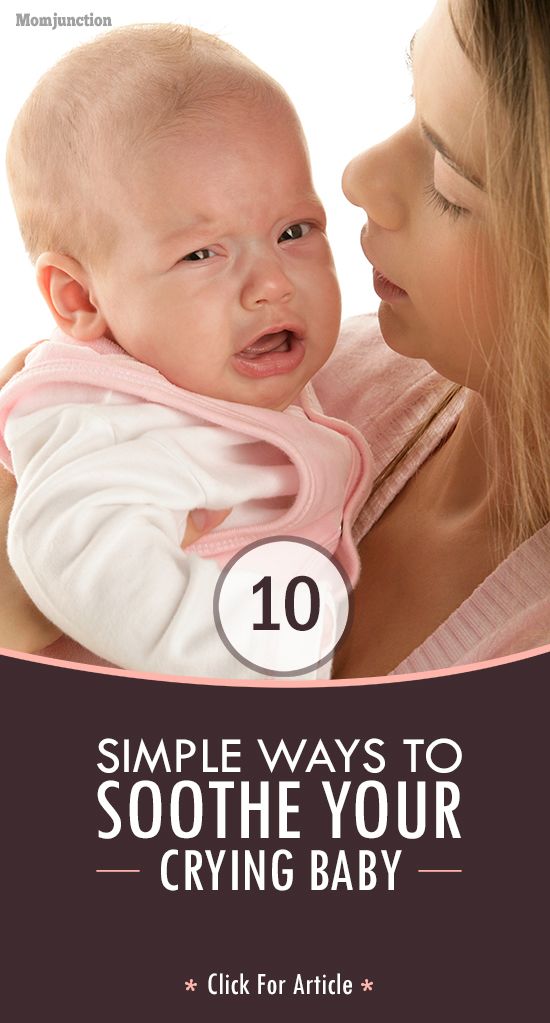
- Work on breastfeeding techniques.
- Seek medical attention if all else fails - child continues to cry and has additional questionable symptoms.
A triad of symptoms that are always alarming
You should also consult a doctor if, during feeding, the child wriggles and cries from constant acute pain, cannot calm down, vomiting, blood and mucus in the stool, rashes in the mouth, stuffy nose are observed. Fever is an acute condition that is not associated with constant (for example, for a month) baby crying during feeding.
— What should I do if my baby refuses to breastfeed?
— The main thing for a mother is to remain calm and adequate. For a breastfed baby, one break can last an hour, and another five to six hours if the baby has slept long and well. Taking long breaks during the day, the child will still finish his daily allowance in order to develop normally. For example, if he has not eaten for six hours during the daytime, he will breastfeed more often at night. Therefore, in feeding children in the first half of life during the day, it is better not to take breaks for more than 3-3.5 hours. With the introduction of complementary foods, the intervals may be slightly longer. nine0003
Therefore, in feeding children in the first half of life during the day, it is better not to take breaks for more than 3-3.5 hours. With the introduction of complementary foods, the intervals may be slightly longer. nine0003
Night breaks are individual and depend only on the child - some children from birth maintain a 6-8 hour interval, and some sleep at night for eight to twelve hours or eat every hour.
Read also
- About the reasons why a child refuses breast milk and whether it is necessary to switch to mixed or artificial feeding in such cases.
— Is it necessary to stop feeding if the baby is naughty?
- Depends on age. Mom should feel what exactly the child needs at this moment. If a newborn cries and refuses to breastfeed, you can calm him down, vilify him with a column, shake him, and then attach him to the breast again. If, having calmed down, the child turns away from the chest, then he has eaten.
An older child is distracted from the breast, becoming interested in something else. Do not force feed him. We must try to remove all irritants - feed in isolation in a separate room, not be distracted by gadgets, sounds, or give the child the opportunity to satisfy his interests, and then offer the breast again. nine0003
Do not force feed him. We must try to remove all irritants - feed in isolation in a separate room, not be distracted by gadgets, sounds, or give the child the opportunity to satisfy his interests, and then offer the breast again. nine0003
— What else can help calm the baby?
- Since most causes of crying are not related to medical problems, medication is not needed. It is necessary to relax, set up the baby, pump him, try to competently organize breastfeeding - apply correctly, do not give a dummy, nipple, supplement from a cup or syringe without a needle. As a rule, this is how most feeding problems go away.
— In what situations can a breast be replaced with a bottle? nine0012
— It is not worth replacing breastfeeding with formula feeding without acute vital signs. When a baby is not accepting the breast well, it is worth removing all bottles, continuing to supplement with “non-sucking” items, and contacting a breastfeeding specialist to try to establish attachment and breastfeeding. This is done by a lot of people.
- Does changing the feeding regimen help to get rid of crying?
- Rather, these are unrelated things. It is not worth forcibly adjusting the feeding regimen, you need to listen to the child - in the first three months, the children constantly hang on their chest, after they begin to form a regimen and the intervals between meals increase. It is important to feel the needs of the child, because not only hunger, but also other things can disturb him, and if he constantly poke his chest, he will not be very pleased. nine0003
Table. Mistakes during breastfeeding
The baby cries during breastfeeding for many reasons. It can be improper attachment to the breast, "tangled nipples", inflammatory diseases of the oral cavity, runny nose, colic, teething, lactase deficiency, or a very nervous state of the mother. It is possible to understand what the problem is only by eliminating the organic and psychological causes of crying. With prolonged ongoing anxiety, the child should be shown to a specialist. nine0003
* Breast milk is the best food for babies. WHO recommends exclusive breastfeeding for the first 6 months of a child's life and continued breastfeeding after complementary foods are introduced until the age of 2 years. Before introducing new products into the baby's diet, you should consult with a specialist. The material is for informational purposes and cannot replace the advice of a healthcare professional. For feeding children from birth. The product is certified.
#advice for mom #breastfeeding
See also
The baby is not full of breast milk: how to determine it and what to do
#Food #breast-feeding #supplementing formula while breastfeeding
Shcherbakova Alla Anatolyevna
Candidate of Medical Sciences, pediatrician, gastroenterologist
Why does the baby not sleep after feeding?
#Tips for Mom #breast-feeding #colic #gaziki 7-12
Nikulina Anastasia Anatolyevna
pediatrician
Infant feeding patterns - what to choose
#Tips for Mom #breastfeeding
Kizino Polina Alexandrovna
pediatrician, perinatal psychologist
See all
View all
Why does the baby not sleep after feeding? nine0003
# Tips for mom # grudnoe-vskarmlivanie # breast-feeding # colic #koliki # gaziki 7-12
Nikulina Anastasia Anatolyevna
pediatrician
The baby is not full of breast milk: how to determine it and what to do
# Lure # breast-feeding # grudnoe-vskarmlivanie # formula supplementation while breastfeeding
Shcherbakova Alla Anatolyevna
Candidate of Medical Sciences, pediatrician, gastroenterologist
Infant feeding patterns - what to choose
# Tips for mom # breast-feeding #grudnoe-vskarmlivanie
Kizino Polina Alexandrovna
pediatrician, perinatal psychologist
See all
View all
View all
View all
Why is my baby crying while feeding?
Hunger causes almost physical suffering to the baby: the level of glucose in the blood drops, the cells of the body do not have enough energy for growth and development, and all this is very unpleasant. That is why the baby is filled with loud, demanding crying with notes of disappointment and resentment. Well, how is it - they still haven't fed him - also to me, the parents are called! Previously, when babies were advised to feed strictly by the hour, hungry babies had time to cry almost before each feeding. There was even such a theory that crying is good for a baby - by doing so, he develops his lungs. In fact, his hungry cry does no more good for the respiratory system than your attempts to call a waiter in a crowded restaurant: you want to make an order, they don’t hear you, and sucks more and more in the stomach ... Feed the child as soon as possible, even if he is hungry before the allotted time. nine0003
Just colic
All babies go through a period of colic in the tummy. They arise due to the immaturity of the digestive system, which adapts to milk, formula, supplementary food and complementary foods. Enzymes are still lacking, beneficial bacteria have not yet properly populated the intestines, so it cannot cope with the food load, overflowing with gases: they burst its walls and cause paroxysmal pain. At the same time, the baby screams quickly and piercingly and tenses up: he frowns, blushes, presses his legs to his tummy or twists them, clenches his fists. The screams follow each other for hours, exhausting both the child and the parents. Having warmed up on the handles, he calms down (warmth reduces pain), but as soon as the baby is put in the crib, the crying starts again. nine0003
Are you breastfeeding? Eliminate legumes, cabbage, soda, chocolate from the menu
Lay the baby on his tummy, apply a diaper or heating pad ironed (for warmth), massage around the navel in a clockwise direction.
Give pharmacy infant tea with chamomile, fennel or dill (dill water) - it reduces the formation of gases.
Do not overfeed! And make sure that the baby does not swallow air during feeding: this happens if he does not suckle well to the breast or if the mixture does not completely fill the hole in the bottle during feeding. 50-70% of the gases accumulated in an infant are swallowed air! nine0003
Brain scream
Headache is very hard to bear.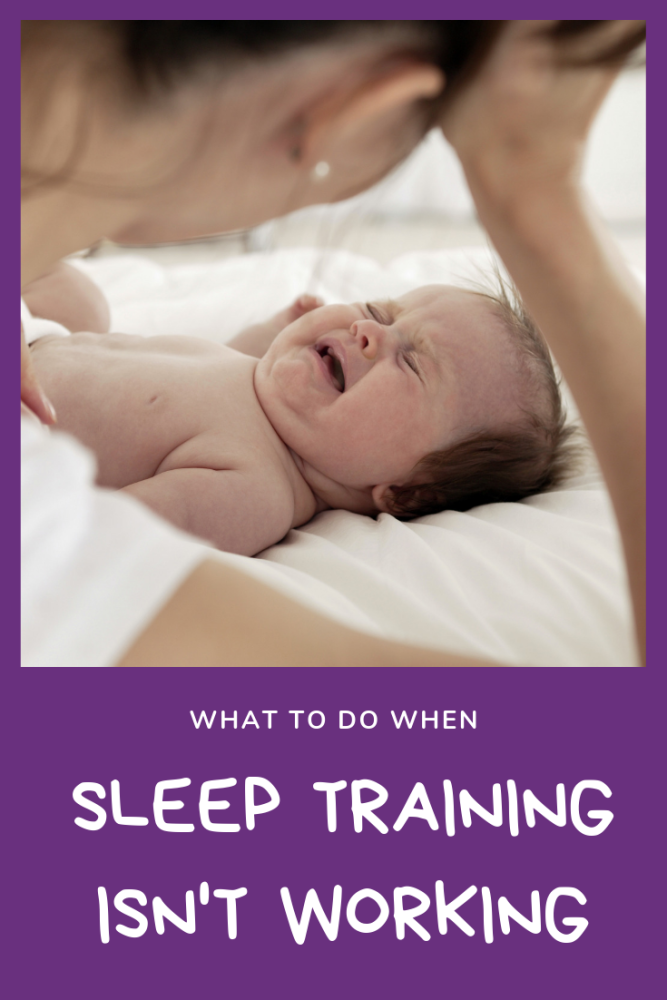 It seems that nature protected the baby from her, leaving the fontanelles uncovered. But if intracranial pressure rises quickly, and this system does not compensate for it, and also in the second half of life, when the fontanelles are almost closed, hypertension syndrome inevitably leads to headaches. She makes the baby cry in a special way: quietly, but continuously, monotonously, on one note. In such cases, you need to consult a neurologist. nine0196
It seems that nature protected the baby from her, leaving the fontanelles uncovered. But if intracranial pressure rises quickly, and this system does not compensate for it, and also in the second half of life, when the fontanelles are almost closed, hypertension syndrome inevitably leads to headaches. She makes the baby cry in a special way: quietly, but continuously, monotonously, on one note. In such cases, you need to consult a neurologist. nine0196
Acute abdomen
Infants sometimes develop a very formidable condition - intestinal obstruction, in other words - volvulus of the intestines (intussusception). It arises due to the inconsistency of the waves of peristalsis that move food through the intestines. If a wave is too strong, intussusception may occur. At the same time, the crying of the baby will change - there will no longer be screams, as with colic, but waves of a loud, desperate cry. The pain is repeated in attacks: between them the child calms down and even falls asleep, but then starts screaming and rushing about again. nine0003
nine0003
When introducing a new formula or product to an infant's diet, start with mini servings
Urgently call an ambulance! Even if it turns out that this is still not intestinal obstruction, but gases, the child’s tummy hurts very much: let the doctor help him by using a gas tube.
Food is like trouble
Does the baby take the breast or the bottle and then throws it away and starts screaming sharply and piercingly? Another option is a high-pitched cry immediately after feeding. Crying occurs due to a sharp pain in the abdomen, provoked by a lack of the lactase enzyme, which is involved in the breakdown of milk sugar - lactose. Upon receipt of the first portions of milk, the intestinal walls contract intensely, and it itself begins to ferment, causing flatulence with a sharp bloating of the abdomen. And it hurts a lot - hence the crying! In addition, the baby remains hungry: milk is not digested and absorbed. nine0003
Your doctor will give your baby lactase supplements or recommend a formula containing lactase.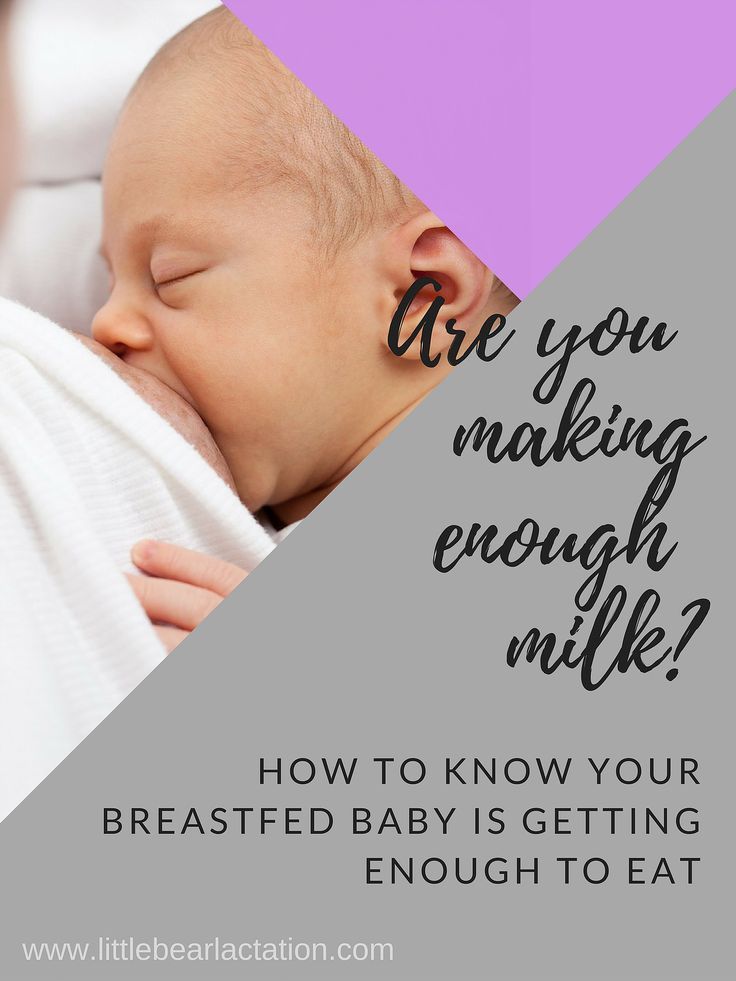 In many children, the synthesis of this enzyme improves in the second half of life. Then the child can be fed dairy products without the risk of provoking colic and crying.
In many children, the synthesis of this enzyme improves in the second half of life. Then the child can be fed dairy products without the risk of provoking colic and crying.
Teething?
Does the baby have wet eyes all the time: does he whine slowly, then sobs at the top of his voice? Look into his mouth: it looks like his first incisor is making his way below! At the time of the eruption of the next tooth, children's immunity weakens, and the child easily catches a cold. To alleviate the condition of the child, lubricate the gum in the place where the tooth pecks with a special tooth-cutting gel for babies (it has anesthetic properties). Let him gnaw on the gear-cutting rings with some water inside (having cooled first). nine0196
Otitis starts
The child literally takes a few sips and suddenly breaks into a piercing cry! Tries to suck again - and screams again. It hurts the kid to do this, because with every sip he shoots in the ear.



